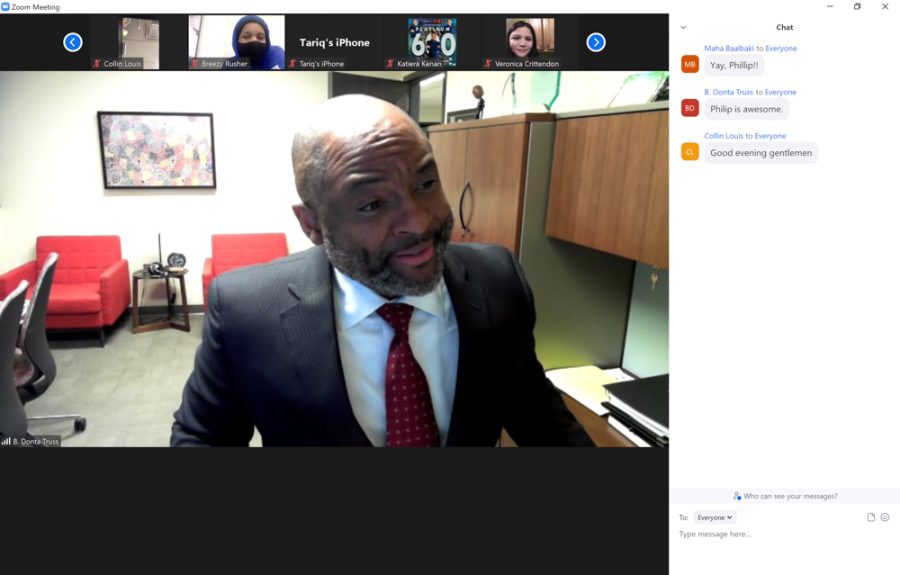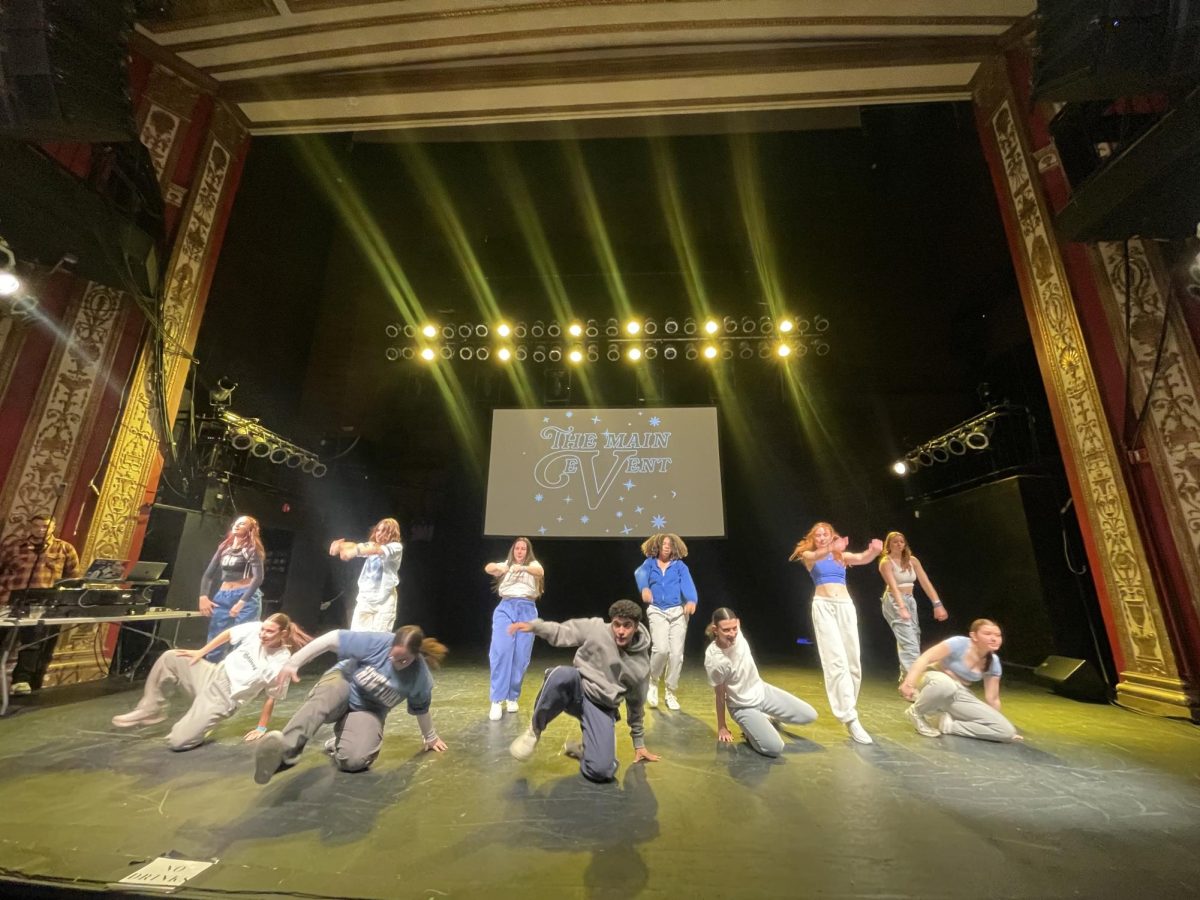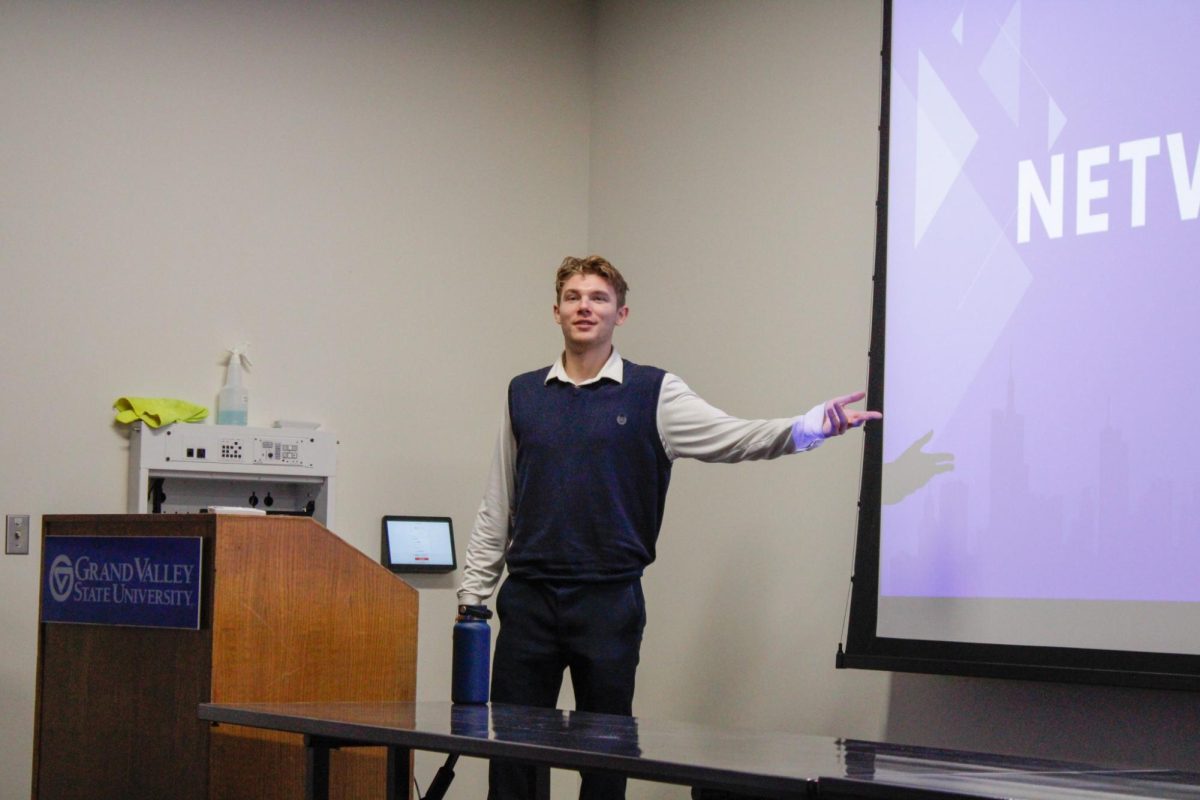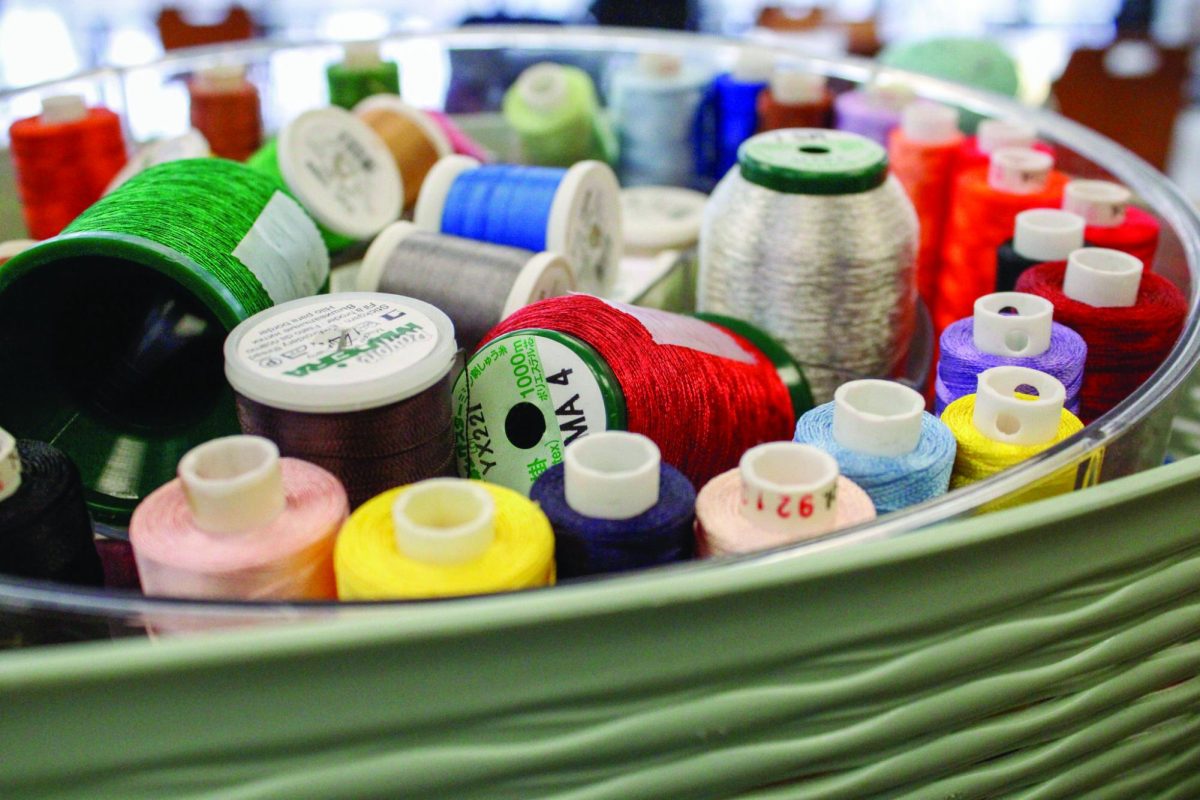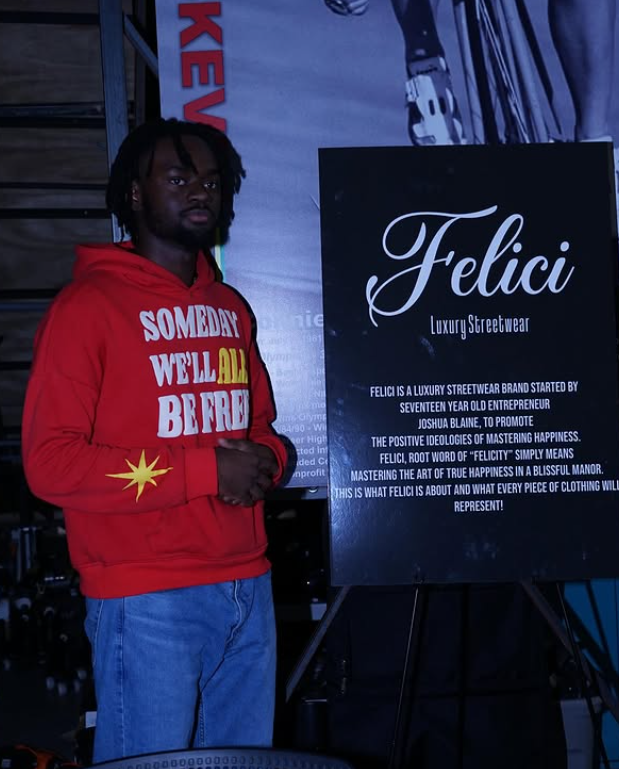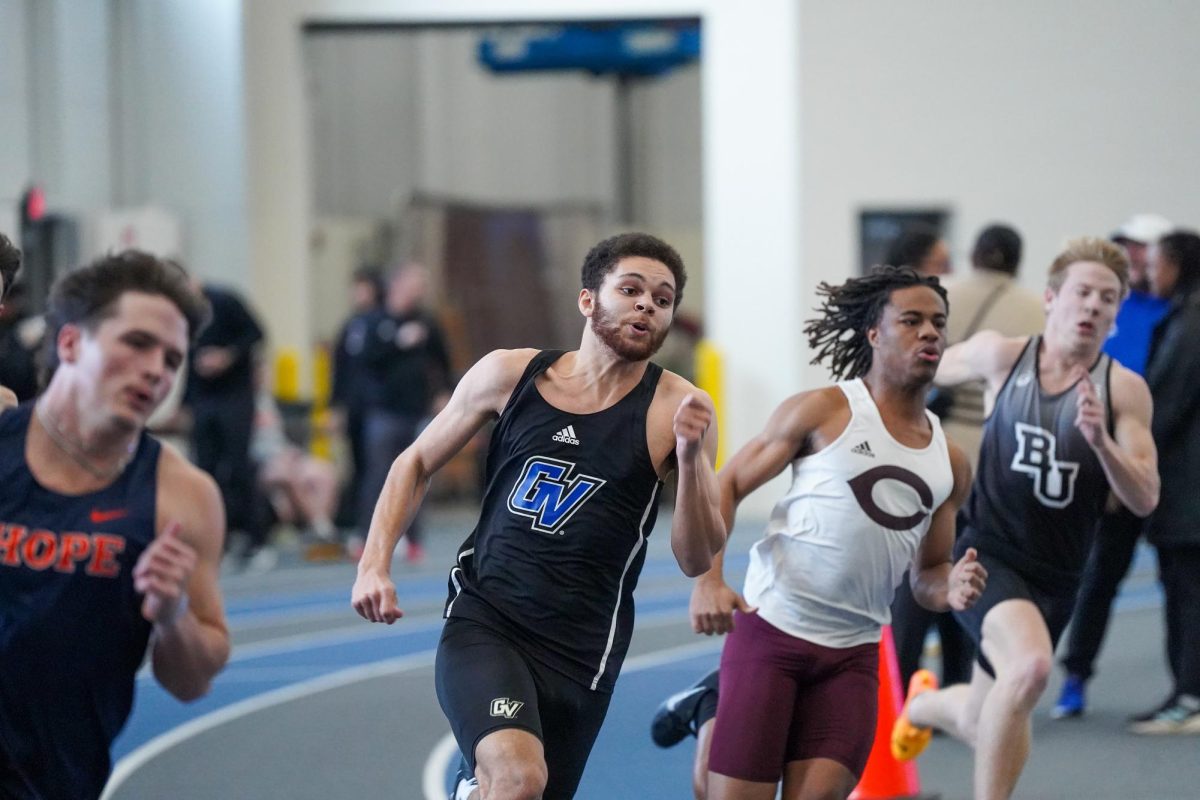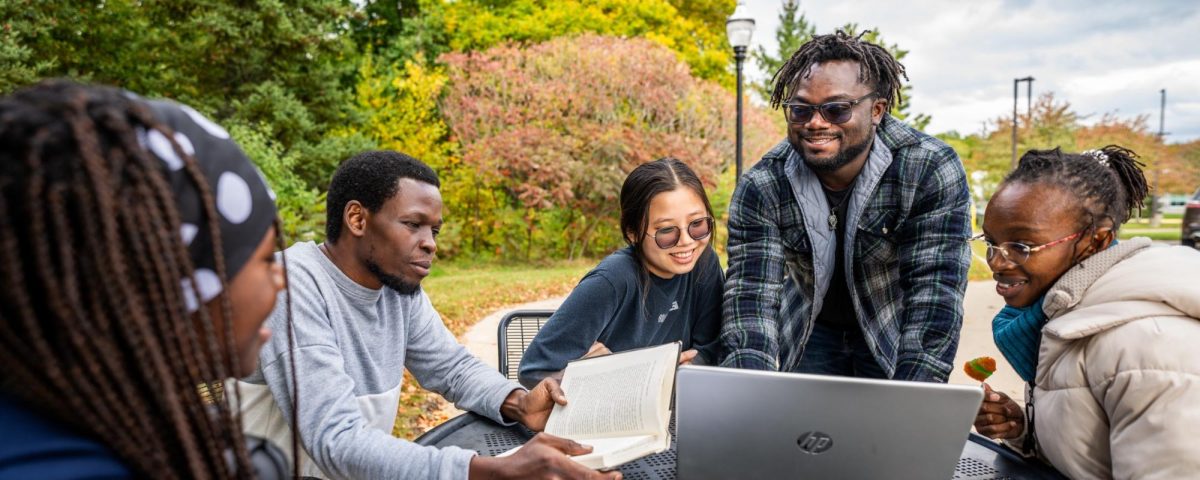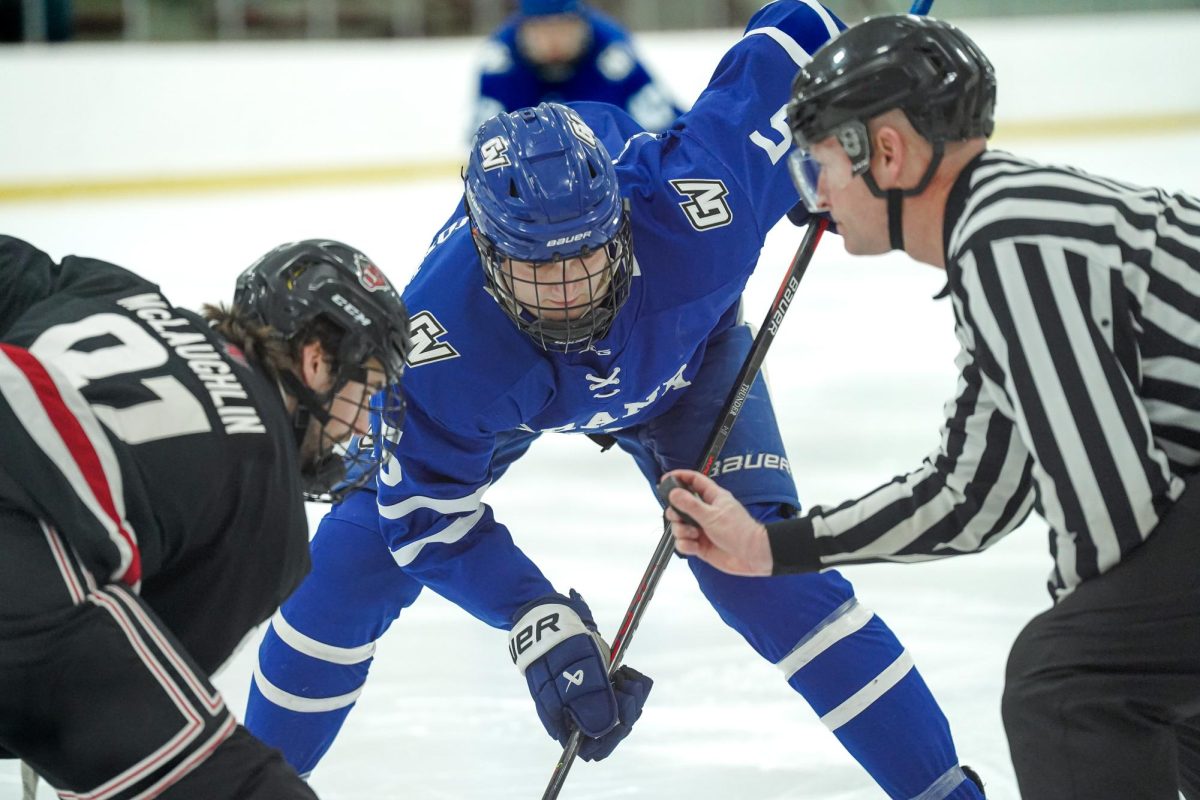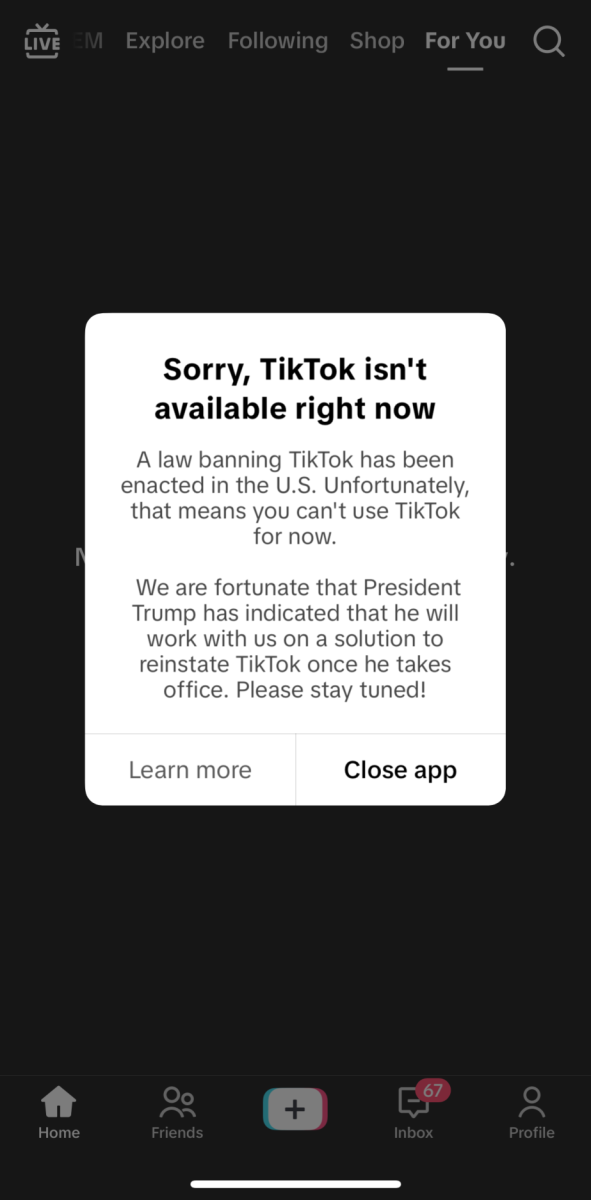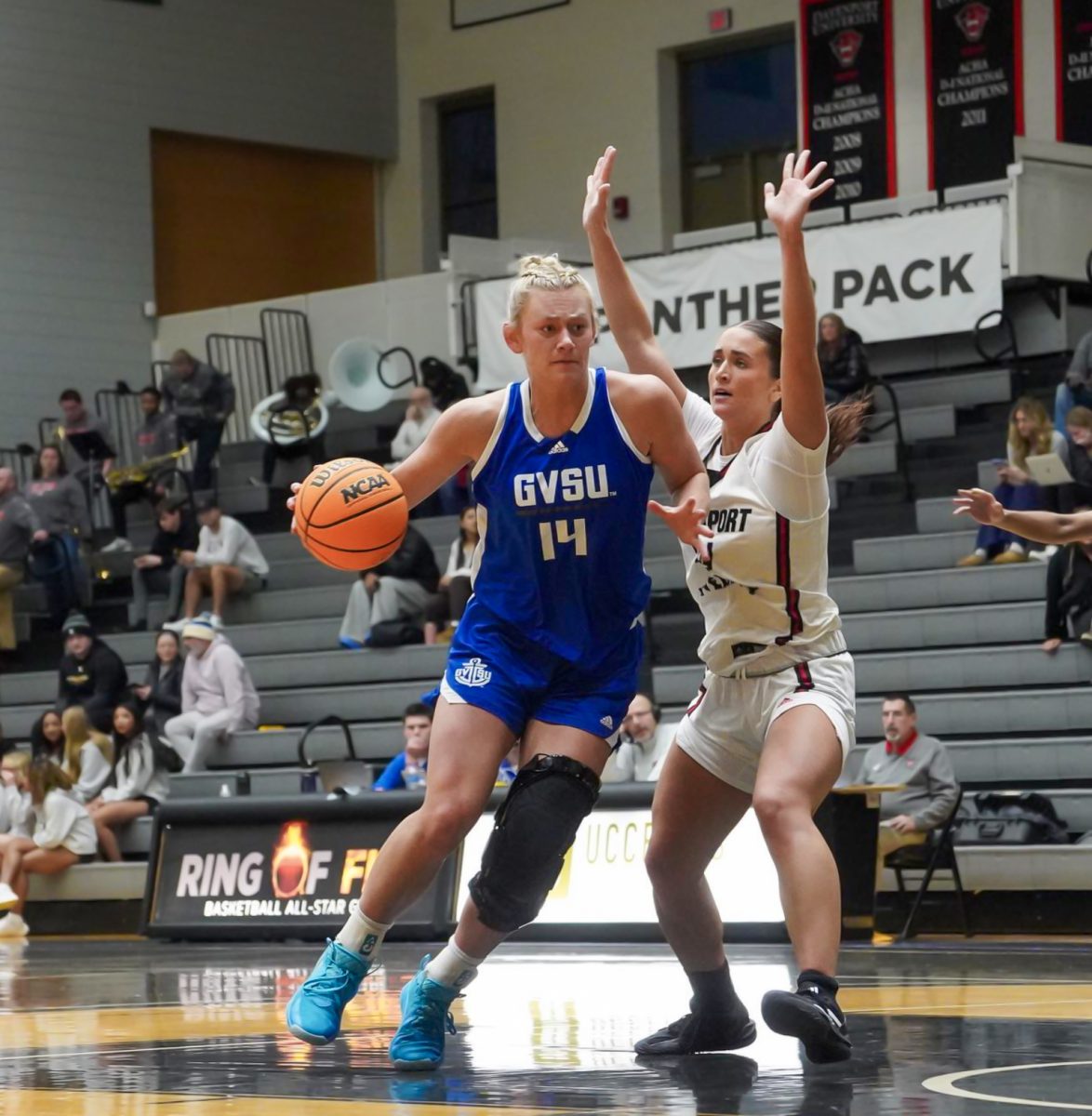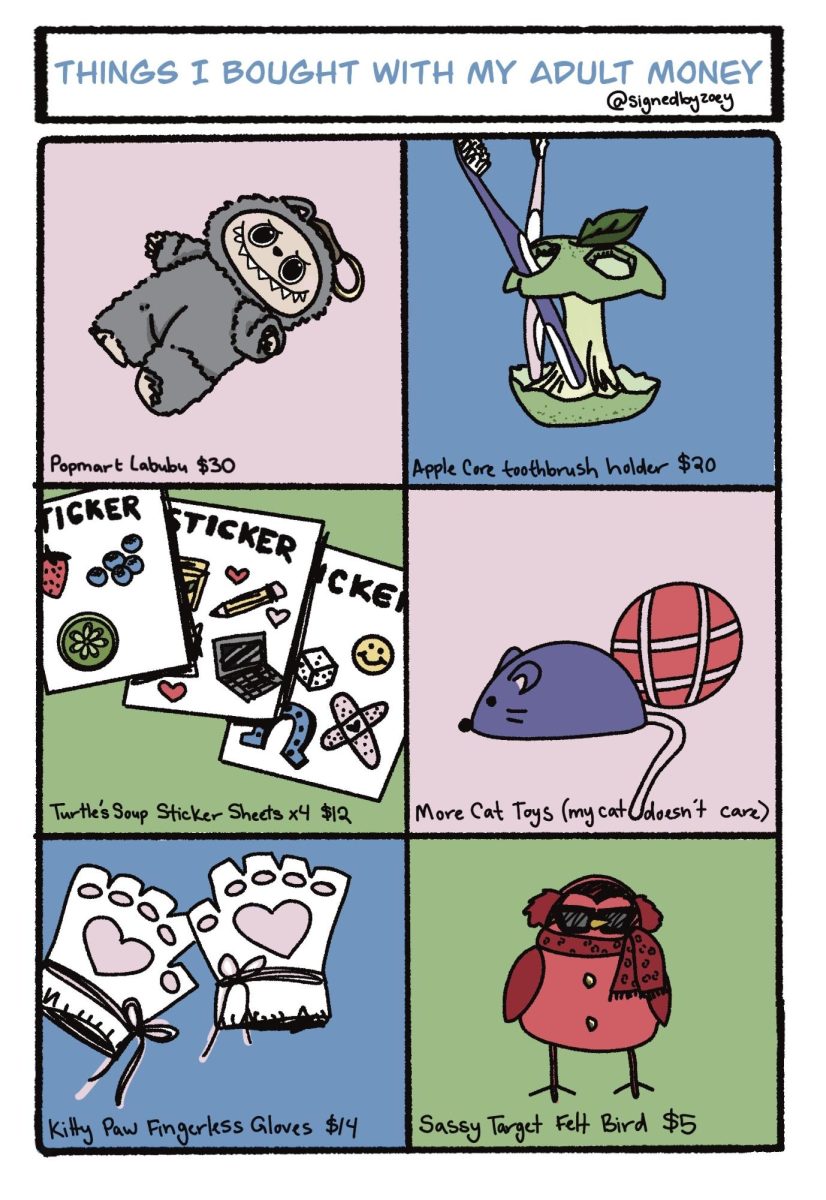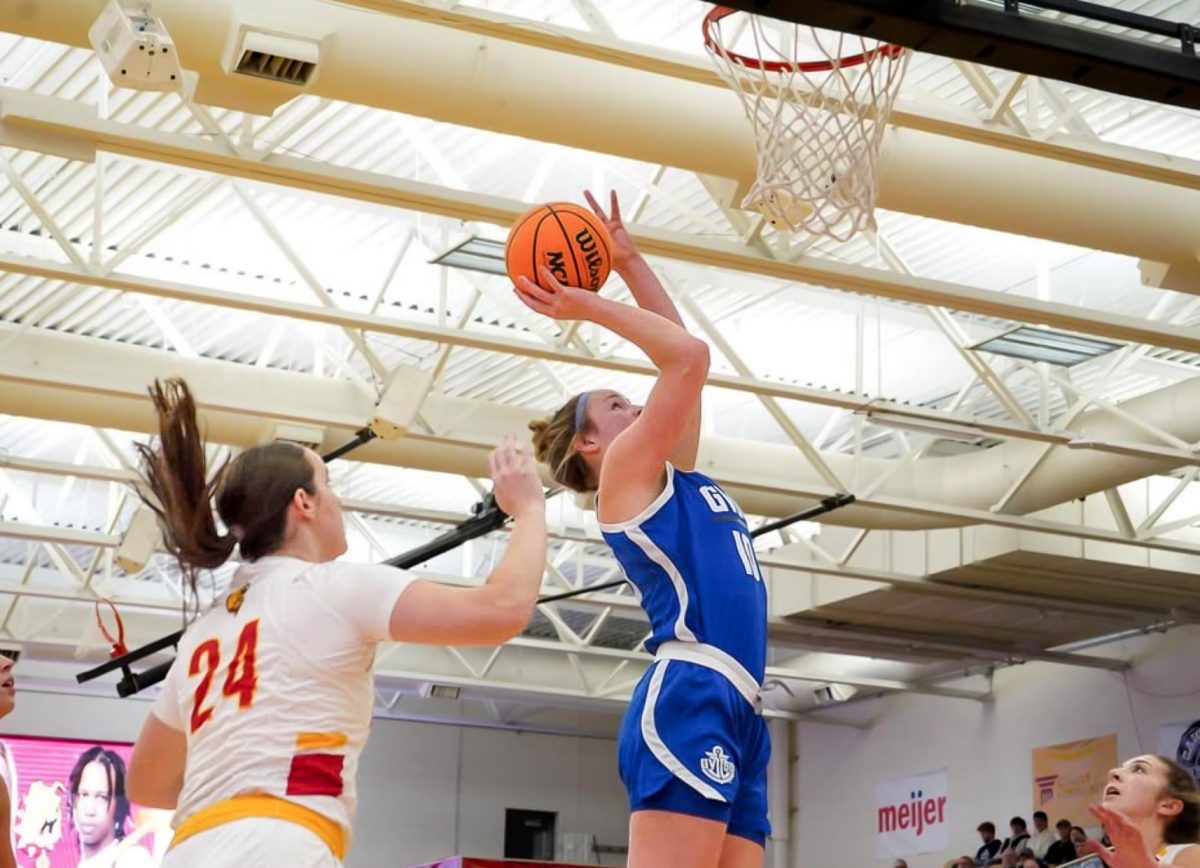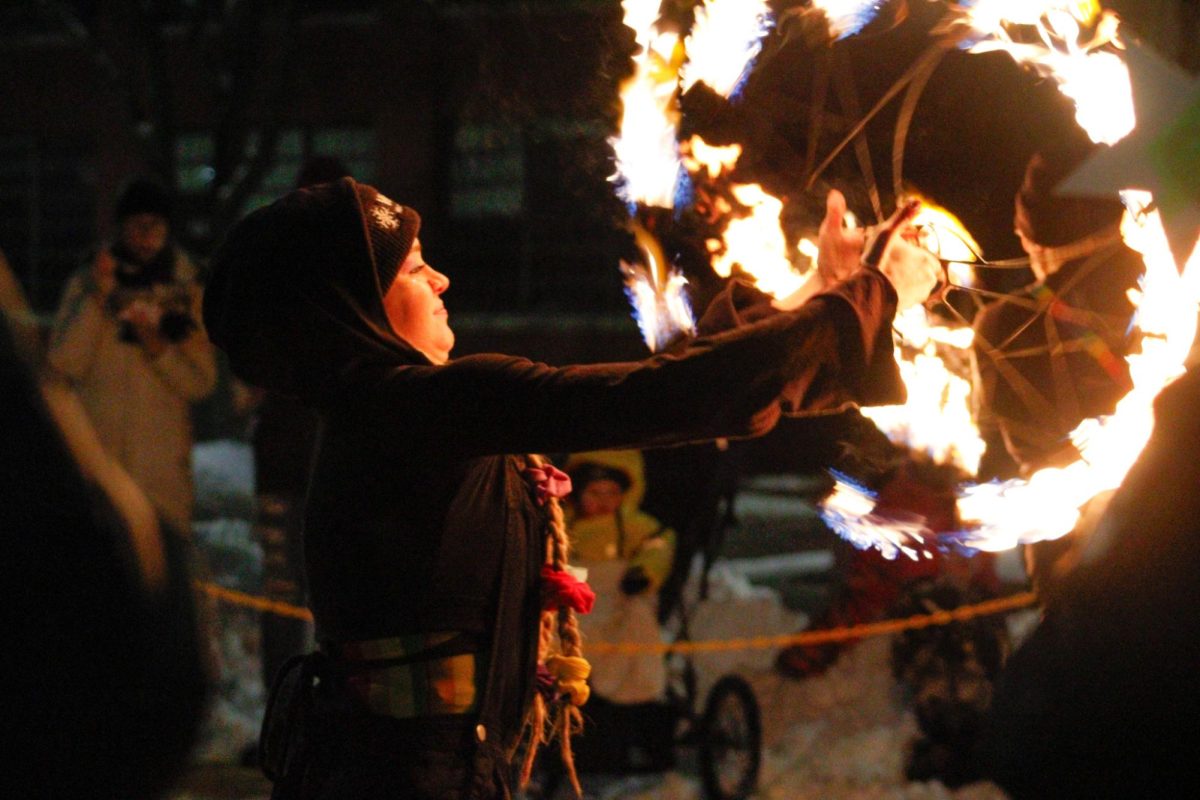Office of Multicultural Affairs unpacks experience of Black men in higher education
Feb 7, 2022
Each February, Black History Month highlights the contributions and culture of the Black community in the United States and Canada. To kick off a month-long series of events celebrating Black History Month, Grand Valley State University’s Office of Multicultural Affairs (OMA) held a virtual discussion highlighting Black men in higher education on Feb. 3.
OMA Assistant Director Juanita Davis began the event by sharing statistics on African American students in terms of education. Before the rest of the panelists began to talk, she shared that GVSU is aware of these statistics and is working to change the narrative.
“Black women graduate at a 10% higher rate than black men,” said Davis. “The school-to-prison pipeline for Black men is a result of a lack of education.”
Davis then introduced Phillip Todd, who was the host for the remainder of the event. Todd is a success coach for diverse population retention initiatives and co-lead of the Black Male Scholars Initiative program at GVSU.
The rest of the panelists included Dr. Barry Hall, Assistant Director of the Charter Through College program and Interim Director of the OMA, Bobby Springer, Assistant Director of Veterans Upward Bound and co-lead for the Black Male Scholars Initiative and Dr. Donta Truss, Vice President of Division of Enrollment Development and Educational Outreach.
Todd asked the panelists what made them want to attend college.
“In high school, college wasn’t an option for me,” Hall said. “Basketball was my drive, but the push of my family made me do it up to my doctorate degree.”
The remainder of the panelists mainly spoke about people that helped them along their educational journeys.
Springer highlighted the fact that he started out working with non-white students in a summer job, then worked his way up from there. Hall decided during his undergraduate study that he wanted to pursue higher education.
“I started out as a high school counselor, but a teacher told me that I could have a greater reach if I taught higher education,” Hall said. “I can connect with people that may have had similar life experiences.”
Seeing other people of color on campus is more important than many might think, Truss said. It makes students feel like they aren’t alone even though they may be living on their own for the first time.
“When people can connect with more people, it increases your chances of doing well,” Truss said.
The final question from Todd before the discussion was opened up to questions from the audience focused on the panelists’ past. Todd asked what the panelists would tell their younger selves if they could meet them today.
“It is important to tell them that they belong here,” Hall said. “You have more power than you will ever know, just keep pushing.”
Truss agreed and added to Hall’s answer.
“I would start by telling myself to slow down and take a deep breath,” Truss said. “That fear of failure, don’t let it rule you. You can do this.”
In closing, Davis brought everything full circle.
“You’ve got to keep pushing, you’ve got to find your person and it’s extremely important if you can find someone that sees something in you that you don’t see in yourself,” Davis said. “Although I am not a Black male, I still share some of the same feelings.”
More Black History Month events, both virtual and in-person, will continue throughout February. To find more information on future events, visit www.gvsu.edu/oma/.




